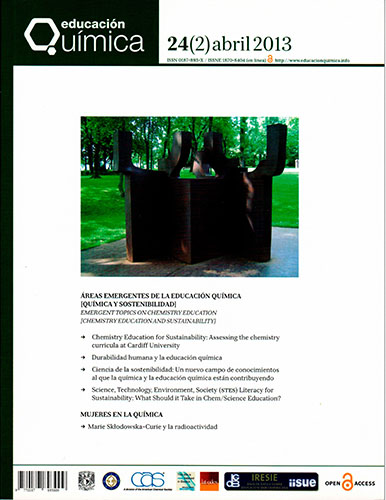Science, Technology, Environment, Society (stes) Literacy for Sustainability: What Should it Take in Chem/Science Education?
Contenido principal del artículo
Resumen
Ensuring sustainability requires a paradigm shift in conceptualization, thinking, research and Science education, particularly concerning the science-technology-environment-society (stes) interfaces. Consequently, stes literacy requires the development of students’ capabilities via higher-order cognitive skills (hocs)-promoting teaching, assessment and learning strategies. Striving for sustainability and the consequent paradigms shift, from unlimited growth to sustainable development, makes the corresponding paradigms shift in science, environmental and technology engineering education, from algorithmic teaching to hocs learning, to become unavoidable. The identified paradigms shift reflect the ever-increasing social pressure towards more accountable, socially- and environmentally-responsible sustainable action. Concomitantly, this pressure constitutes the driving force for stes education for sustainability. This requires hocs for responsibly dealing with multi-dimensional, socio-economical-technological-environmental systems. Our research findings and educational practice suggest, that, although the road to stes literacy for sustainability is rocky, it is educationally feasible and, therefore, attainable.
Detalles del artículo
Citas en Dimensions Service

Educación Química por Universidad Nacional Autónoma de México se distribuye bajo una Licencia Creative Commons Atribución-NoComercial-SinDerivar 4.0 Internacional.
Basada en una obra en http://www.revistas.unam.mx/index.php/req.




